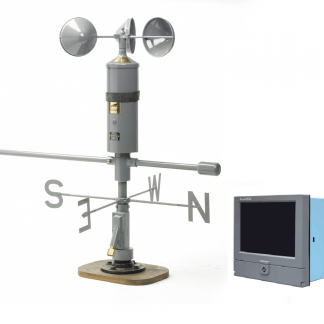A weather station is a facility placed on land or at sea, with instruments and equipment for measuring atmospheric conditions to provide information on weather forecasts and weather and climate research.
MRC Offer weather station Providing reliable information in real time.Suitable for commercial, industrial, educational, governmental and military use.
Uses of Weather Stations
Weather stations have become indispensable tools across various sectors due to their ability to provide accurate and real-time weather data. From agriculture to aviation, construction to research, weather stations play a crucial role in numerous applications, offering valuable insights and enhancing decision-making processes.
Agriculture
In agriculture, weather stations aid farmers in making informed decisions regarding irrigation, fertilization, and crop management. By monitoring temperature, humidity, rainfall, and wind speed, farmers can optimize planting schedules, prevent crop diseases, and maximize yields. Weather data helps in mitigating risks associated with adverse weather conditions, such as frost or drought, ensuring crop health and productivity.
Aviation
Weather stations are essential for aviation safety and operations. Airports and aviation authorities rely on weather data to assess visibility, wind conditions, and turbulence, enabling pilots to plan flights and navigate safely. Weather stations provide crucial information for takeoff and landing procedures, helping to minimize risks and ensure passenger and crew safety.
Construction
Weather conditions significantly impact construction projects, influencing timelines, material selection, and worker safety. Weather stations help construction companies monitor environmental variables such as temperature, humidity, and precipitation. By analyzing weather trends, construction managers can schedule work effectively, prevent weather-related delays, and maintain optimal working conditions on-site.
Weather Forecasting
Weather stations collect data on temperature, humidity, atmospheric pressure, wind speed, and precipitation, among other variables. This data is crucial for meteorologists and weather forecasters to predict short-term and long-term weather patterns accurately.
Climate Monitoring
It help monitor climate trends over time by collecting historical weather data. This information is vital for understanding climate change and its impacts on different regions.
Energy Production
Weather stations are important in the renewable energy sector, particularly for wind and solar power generation. Wind speed data helps identify optimal locations for wind turbines, while sunlight data assists in predicting solar energy output.
Emergency Management
Weather stations contribute to early warning systems for natural disasters such as hurricanes, tornadoes, floods, and wildfires. Timely weather information enables emergency responders and authorities to plan and implement effective disaster preparedness and response strategies.
Research and Education
Weather stations support scientific research and educational initiatives related to meteorology, climatology, and environmental science. They provide valuable data for studying weather patterns, atmospheric phenomena, and climate dynamics.
Outdoor Recreation and Tourism
Weather forecasts from stations help outdoor enthusiasts plan activities such as hiking, camping, boating, and skiing. Real-time weather updates enable individuals to make informed decisions and stay safe during their outdoor adventures.
Health and Public Safety
Weather stations contribute to public health by providing information on air quality, pollen levels, and other environmental factors that can impact human health. This data supports efforts to address health risks associated with weather-related phenomena.
